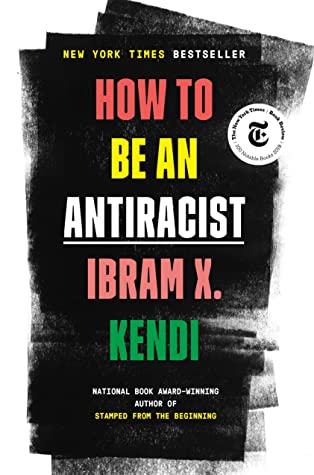Joy's Book Blog

Joy's Book Blog


Ironically, I liked this book better than White Fragility, but it was much harder to get through. After researching author Ibram X. Kendi, I figured out why…he is a historian and college professor, and this book does read like an academic paper at times. Kendi tries to intersperse personal stories to liven it up, but they pale in comparison to the sheer volume of words he uses in historical references and lengthy descriptions. There were times when it did feel more like a textbook than a book I was reading for “fun.” However, I liked this book because to me, Kendi offered more realistic (and uplifting) views on racism in America today.
Like when White Fragility’s author Robin DiAngelo defined racism in her book, Kendi coins a new term in his book: antiracist. But unlike DiAngelo, Kendi makes a good argument for why we need this new term. He writes that being “not racist” is not enough, because that term signals neutrality and “there is no neutrality in the racism struggle” (p. 9). He contends that we need a new term that conveys the conscious thought process of working against racism, not remaining neutral to it but actively fighting against it. So I thought his new term was justified and filled a gap missing in American English, as opposed to DiAngelo who simply redefined an already existing term to suit her own literary ends.
What I identified most with in Kendi’s book was when he described how racism exists in all cultures, and how each one of us can work to change that in our own spheres of influence. He acknowledges that yes, there is obvious racism between Whites and Blacks, but he also writes about how racism exists between Whites on Whites (“white trash” as an example) and Blacks on Blacks (he specifically uses the n-word as an example here). He even deals with how Blacks and Whites both want to be like, and at the same time put-down, biracial people.
But he left the reader with a sense of hope (at least, he did with me) that DiAngelo did not. Kendi wrote that when books (like White Fragility, although he didn’t specifically call that one out) say that Blacks can’t be racist because they don’t have the power to change anything, that underestimates Black people. One of my favorites lines is when Kendi wrote “every single person actually has the power to protest racist and antiracist policies, to advance them, or in some small way, to stall them” (p. 140). To me, this statement rings truer than anything I read in the previous book, and it gives me hope that in some small way, I can affect change in my own world; maybe by teaching my children antiracist thinking, demonstrating it in my classes or to family and friends, or using my vote in November to stand up against racist policies. These may seem like little things, but little things can make big changes.
I think Kendi summed his book up well all the way back in Chapter 1: “This book is ultimately about the basic struggle we’re all in, the struggle to be fully human and to see that others are fully human” (p. 11-12). It’s not an easy or fast read, but I found that I walked away from it with more insights and sense of purpose than I did from the other books on racism I’ve read.